
Copernical Team
Airbus, Air Liquide and ispace Europe launch EURO2MOON
 In a contex of increased momentum around space exploration, Airbus Defence and Space, Air Liquide and ispace Europe have announced the joint creation of EURO2MOON.
This non-profit organisation will be dedicated to promoting a better use of lunar natural resources, while accelerating the cis-lunar economy and federating industrial efforts across Europe.
Bringing in complementary exper
In a contex of increased momentum around space exploration, Airbus Defence and Space, Air Liquide and ispace Europe have announced the joint creation of EURO2MOON.
This non-profit organisation will be dedicated to promoting a better use of lunar natural resources, while accelerating the cis-lunar economy and federating industrial efforts across Europe.
Bringing in complementary exper Crew-3 astronauts launch to Space Station alongside microgravity research
 NASA's SpaceX Crew-3 mission is set to launch four astronauts to the International Space Station aboard a SpaceX Crew Dragon on Sunday, Oct. 31. The mission includes three NASA astronauts - mission Commander Raja Chari, Pilot Tom Marshburn, and Mission Specialist Kayla Barron - as well as ESA (European Space Agency) astronaut Matthias Maurer, who will also serve as a mission specialist.
Ab
NASA's SpaceX Crew-3 mission is set to launch four astronauts to the International Space Station aboard a SpaceX Crew Dragon on Sunday, Oct. 31. The mission includes three NASA astronauts - mission Commander Raja Chari, Pilot Tom Marshburn, and Mission Specialist Kayla Barron - as well as ESA (European Space Agency) astronaut Matthias Maurer, who will also serve as a mission specialist.
Ab NASA seeks input to position mega-rocket for long-term exploration
 NASA is preparing for the first flight of the Space Launch System (SLS) rocket and the Orion spacecraft from the agency's Kennedy Space Center in Florida, along with other flight hardware for the next several Artemis missions in production around the country. The agency also is looking forward to future missions and working to transition SLS from design and development to production and operatio
NASA is preparing for the first flight of the Space Launch System (SLS) rocket and the Orion spacecraft from the agency's Kennedy Space Center in Florida, along with other flight hardware for the next several Artemis missions in production around the country. The agency also is looking forward to future missions and working to transition SLS from design and development to production and operatio You can help train NASA's rovers to better explore Mars
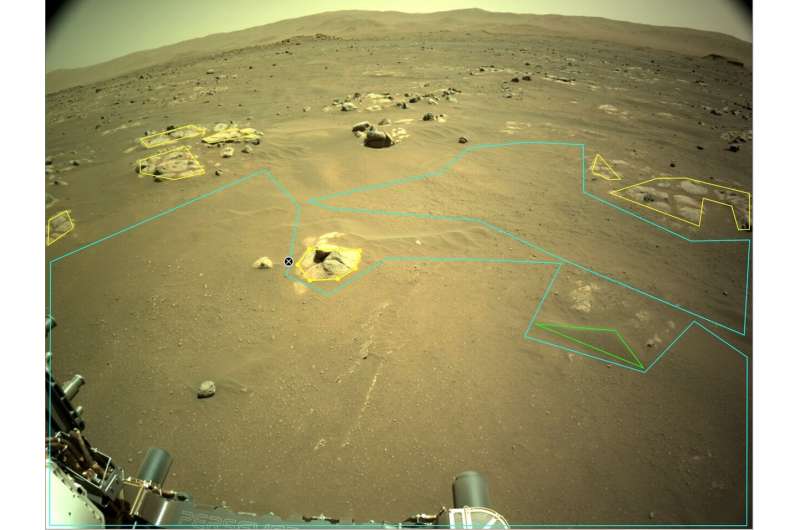
Members of the public can now help teach an artificial intelligence algorithm to recognize scientific features in images taken by NASA's Perseverance rover.
Artificial intelligence, or AI, has enormous potential to change the way NASA's spacecraft study the universe. But because all machine learning algorithms require training from humans, a recent project asks members of the public to label features of scientific interest in imagery taken by NASA's Perseverance Mars rover.
Called AI4Mars, the project is the continuation of one launched last year that relied on imagery from NASA's Curiosity rover. Participants in the earlier stage of that project labeled nearly half a million images, using a tool to outline features like sand and rock that rover drivers at NASA's Jet Propulsion Laboratory typically watch out for when planning routes on the Red Planet.
Announcement of opportunity to fly payloads on ESA’s Space Rider
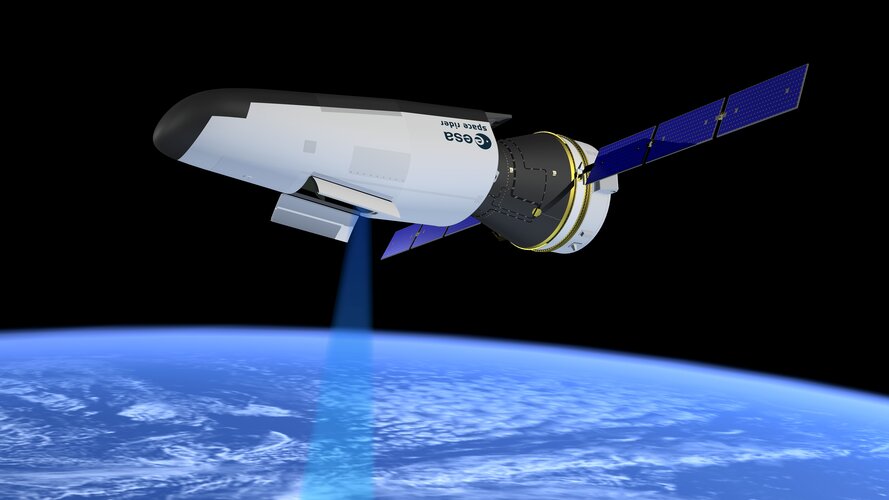
ESA is offering the opportunity for payloads to ride on board the first return flight, and future flights, to low orbit of its reusable Space Rider. Applications should reach ESA by 30 November.
Pathfinding experiment to study origins of solar energetic particles
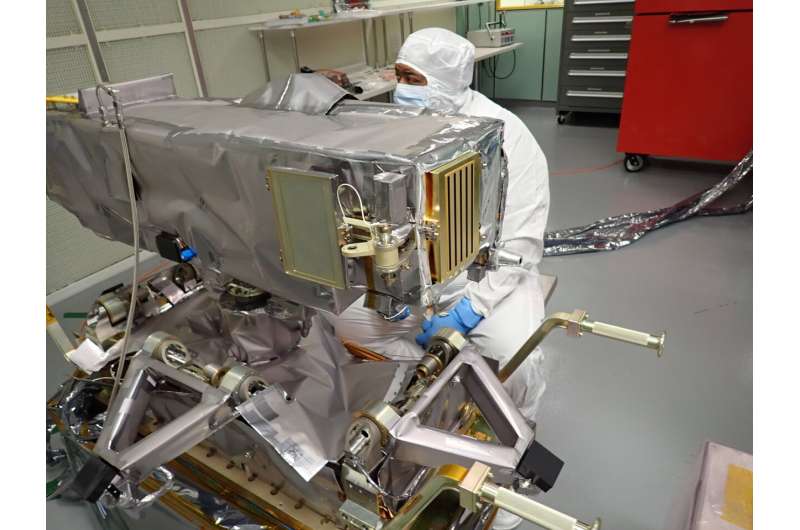
A joint NASA-U.S. Naval Research Laboratory experiment dedicated to studying the origins of solar energetic particles—the Sun's most dangerous form of radiation—is ready for launch.
UVSC Pathfinder—short for Ultraviolet Spectro-Coronagraph Pathfinder—will hitch a ride to space aboard STPSat-6, the primary spacecraft of the Space Test Program-3 (STP-3) mission for the Department of Defense. STP-3 is scheduled to lift off on a United Launch Alliance Atlas V 551 rocket no earlier than Nov. 22, from Cape Canaveral Space Force Station in Florida.
SpaceX needs to tame toilet trouble before weekend launch
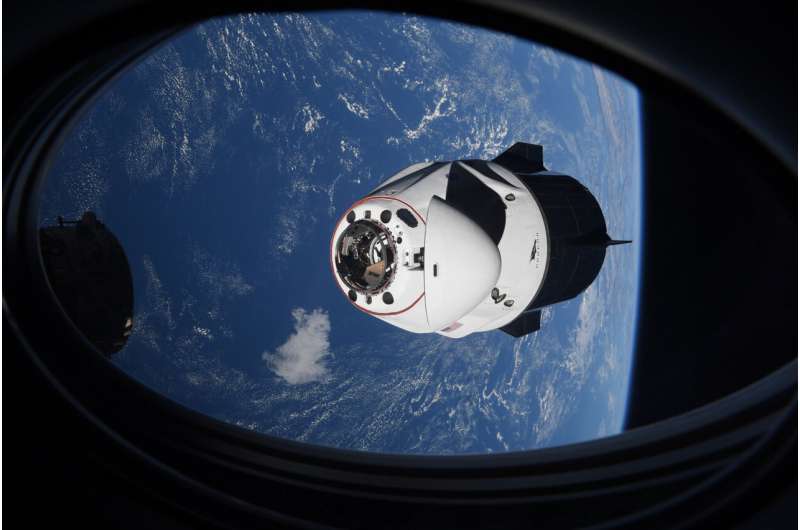
SpaceX is taming some toilet troubles in its capsules before it launches four more astronauts.
Floating through the Space Station in 360
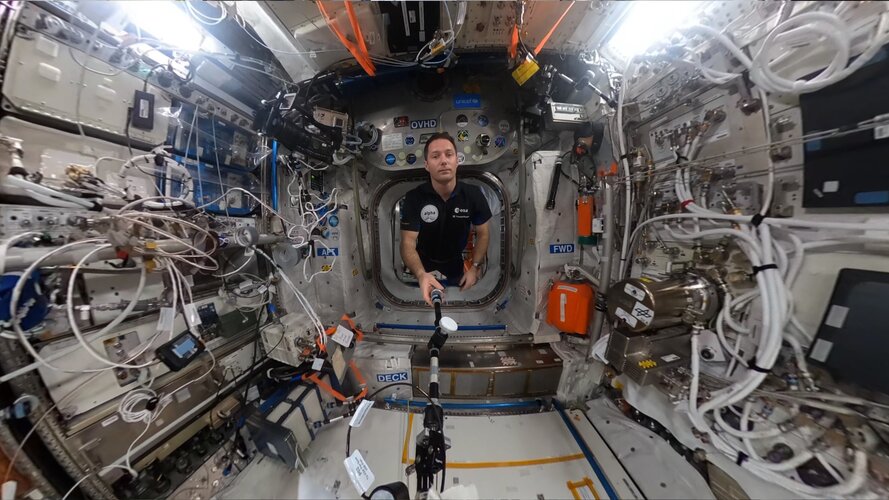 Video:
00:00:54
Video:
00:00:54
ESA astronaut Thomas Pesquet takes you on a brief tour of the International Space Station like no other. Filmed with a 360 camera, he floats from Node-3 to Europe’s Columbus laboratory.
Immerse yourself in this brief but unique fly through humankind’s orbital outpost.
Follow Thomas: https://blogs.esa.int/exploration/it/category/astronauts/thomas-pesquet/
Astronomers provide 'Field Guide' to Exoplanets known as Hot Jupiters
 Hot Jupiters - giant gas planets that race around their host stars in extremely tight orbits - have become a little bit less mysterious thanks to a new study combining theoretical modeling with observations by the Hubble Space Telescope.
While previous studies mostly focused on individual worlds classified as "hot Jupiters" due to their superficial similarity to the gas giant in our own so
Hot Jupiters - giant gas planets that race around their host stars in extremely tight orbits - have become a little bit less mysterious thanks to a new study combining theoretical modeling with observations by the Hubble Space Telescope.
While previous studies mostly focused on individual worlds classified as "hot Jupiters" due to their superficial similarity to the gas giant in our own so Air Force Materiel Command reaches IOC as servicing major command for USSF
 The Air Force Materiel Command declared Initial Operational Capability for its support to the U.S. Space Force on Oct. 1, 2021. The IOC milestone means AFMC is well on its way to fully supporting the Space Force as its Servicing Major Command for Space Force-assigned Airmen.
The USAF and USSF took a series of steps over the past year in the designation of AFMC as Servicing MAJCOM for the U
The Air Force Materiel Command declared Initial Operational Capability for its support to the U.S. Space Force on Oct. 1, 2021. The IOC milestone means AFMC is well on its way to fully supporting the Space Force as its Servicing Major Command for Space Force-assigned Airmen.
The USAF and USSF took a series of steps over the past year in the designation of AFMC as Servicing MAJCOM for the U 